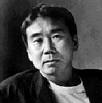On Valentine’s Day it’s snowing and nine degrees. The kids are home from school with up to eight inches expected. They're outside, installing a second ice window in their fort. My husband is coming home rather than meeting me for a romantic lunch in town. Still, fresh snow is good, like a blank sheet of paper waiting for new words.
My favorite non-fiction author,Tracy Kidder, had “a problem of goodness” when writing Mountains Beyond Moutains. It is a chronicle of Dr. Paul Farmer's global quest to cure the poor of illness. Kidder explained to a packed auditorium at Bowdoin College last Friday that it is the reporter’s duty to dig up the dirty secrets. And yet Kidder couldn’t find a chink in Farmer’s armor. A friend had told me that Farmer is called “the saint” by his coworkers. He seemed too good to be real. “Honesty is necessary but not sufficient to make what you believe to be true to be true to readers.”
In order to make the book believable, Kidder inserted himself as a character in his book for the first time. He became the everyman foil to the selfless, brilliant Farmer and takes the reader along for a ride through a world of darkness, following the light of hope. We travel with Kidder and Farmer to poverty stricken Haiti, Russia and Peru and see first hand what a difference a small group of people can make in setting up clinics to cure the poor of TB and other illnesses. Partners in Health succeeded where governments had failed.
Kidder’s other literary problem was that he might alienate his reader. “Good provokes and makes us think about things we are not comfortable about.” Such as the fact that our American “life of privilege is built at least in part by misery elsewhere.” Employing the first person narrative, Kidder candidly shows how he, like you the reader, is less than perfect and even selfish. Even so we can still so do our bit to narrow the gap between rich and poor to a more “dignified poverty.” It’s a message of hope instead of despair.
At the end of the moving presentation, a preppy Bowdoin student turned to her friend and said, “Now, I want to be a doctor!”
Kidder, so well spoken and charmingly funny on stage, seemed almost shy when talking one-on-one unscripted. I was surprised that the author, who won a Pulitzer for his engaging book on emerging computer technology, had never read a blog, but he asked for my website address with the curiosity of a journalist. What I love the most about Kidder’s writing is how he sucks you completely into the world of computers, house builders, school children or health aid workers. His characters are believable and his true books read like novels, which was why I had wrongly assumed he was a computer nerd.
Then again Kidder also wrote Hometown about small town life in Western Mass. and his first question to me was, “You live here?” This from a man who had just visited Farmer’s plumbing free shack in Haiti! Maine in winter must appear equally remote and not the first place where you’d expect to find a blogging novelist in a black turtleneck and boot cut jeans. I love that when talented writers, like Kidder, come to Maine, I actually get the opportunity to meet them.
 I met one of my favorite fiction authors, Haruki Murakami, in my mudroom. My husband was taking him out to dinner with other Japan scholars at Bowdoin. I had just that day finished writing the first draft of Moose Crossing. Odder than the talking cat in Kafka on the Shore was the reclusive author’s appearance in my home on that auspicious night.
I met one of my favorite fiction authors, Haruki Murakami, in my mudroom. My husband was taking him out to dinner with other Japan scholars at Bowdoin. I had just that day finished writing the first draft of Moose Crossing. Odder than the talking cat in Kafka on the Shore was the reclusive author’s appearance in my home on that auspicious night. Murakami was soft-spoken and surprisingly down to earth given the surreal, disturbing tone of his original work. With almost child-like delight, he spoke about discovering some rare jazz records at Vinyl Haven in town and found Maine charming. Murakami shared my joy in finishing a manuscript and wished me the best of luck in getting published. It must have been good karma because that draft of Moose Crossing led me to my agent, Jean Naggar.
There are many fine writers who reside in Maine. My favorite elementary school author is my daughter. She wrote a scary story, The Nevergreen Forest, featuring a white-faced witch with a “voice like fingernails screeching against the chalk-board.” Even adult writers can learn a lesson from her book. Remember to employ all the senses, not just sight, when writing descriptive prose, and draw from your own experiences even when writing fantasy.
When she grows up, my daughter wants to be a writer or a photographer (she took the photo of me on skis in the second blog 1/24/07.) With help from friends, she is starting back up the school newspaper. Always drawing, writing or reading, my daughter won’t leave the house without a notebook. She’s been very curious and excited about my book. I read only the first chapter of Moose Crossing to my children (with a few sentences removed.) They laughed and loved it. It’s fun to be a literary hero, if only in my nine-year-old daughter’s eyes!
Haruki Murakami photo by Marion Ettlinger.
No comments:
Post a Comment